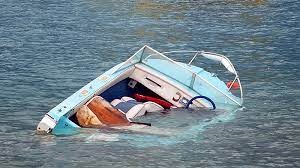Losing a loved one due to another party’s negligence or misconduct is an unimaginable tragedy. Families left behind not only grapple with profound grief but also seek justice for their loss. Wrongful death claims provide a legal pathway for families to hold responsible parties accountable and recover damages for their suffering. This article explores how families pursue justice in wrongful death cases, the legal challenges they face, and the role of experienced legal professionals in achieving fair compensation.
Understanding Wrongful Death Claims
A wrongful death claim is a legal action filed when someone dies due to another party’s negligence, recklessness, or intentional wrongdoing. These claims aim to compensate the deceased’s family members for their financial and emotional losses. According to Wikipedia, wrongful death laws vary by jurisdiction, but they generally allow certain family members, such as spouses, children, and parents, to file a claim on behalf of the deceased.
Common Causes of Wrongful Death Cases
Wrongful death claims arise from various circumstances, including:
- Car Accidents: Negligent or reckless driving, such as speeding or driving under the influence, frequently leads to fatal crashes.
- Medical Malpractice: Misdiagnosis, surgical errors, and improper treatments can lead to preventable fatalities.
- Workplace Accidents: Unsafe working conditions, lack of proper training, or defective equipment can cause fatal workplace injuries.
- Defective Products: Manufacturers can be held liable if a faulty product leads to death.
- Criminal Acts: Intentional harm, such as assault or homicide, may also result in a wrongful death lawsuit.
Legal Process for Seeking Justice
Filing a Wrongful Death Lawsuit
The first step in seeking justice is filing a wrongful death lawsuit in civil court. This legal action is distinct from any criminal proceedings and focuses on financial compensation for the deceased’s family. A wrongful death lawsuit typically requires proof that:
- A person died due to another’s negligence or intentional act.
- The surviving family members have suffered damages due to the loss.
- The defendant owed a duty of care to the deceased and breached that duty.
Challenges in Proving Wrongful Death
Proving wrongful death can be complex. Plaintiffs must gather substantial evidence, such as medical records, accident reports, witness statements, and expert testimonies, to establish liability. Additionally, defense teams often try to shift blame or dispute the extent of damages, making legal representation crucial.
Statute of Limitations
Each state has a statute of limitations that dictates how long families have to file a wrongful death lawsuit. Missing this deadline can result in the loss of the right to seek compensation. It’s essential to consult with an attorney as soon as possible to ensure timely legal action.
The Role of a Wrongful Death Lawyer
Families navigating a wrongful death claim benefit from hiring an experienced attorney. A Duluth wrongful death lawyer (source) can provide essential legal guidance, handle negotiations with insurance companies, and represent the family in court if necessary. These professionals ensure that families receive the maximum compensation for funeral expenses, medical bills, lost income, and emotional suffering.
How an Attorney Can Help
A wrongful death lawyer plays a crucial role in:
- Investigating the Case: Lawyers gather critical evidence, such as medical records, accident reports, and expert opinions.
- Calculating Damages: Attorneys assess financial and emotional losses to determine the rightful compensation.
- Negotiating with Insurance Companies: Legal professionals advocate for fair settlements and protect families from lowball offers.
- Representing Families in Court: If negotiations fail, a lawyer takes the case to trial to fight for justice.
Compensation in Wrongful Death Cases
Wrongful death settlements or verdicts typically cover various forms of damages, including:
- Economic Damages: These include medical expenses, funeral costs, and lost income the deceased would have provided.
- Non-Economic Damages: Compensation for pain and suffering, loss of companionship, and emotional distress.
- Punitive Damages: In cases involving gross negligence or intentional harm, courts may award punitive damages to punish the responsible party and deter future misconduct.
Determining Compensation Amounts
Courts consider several factors when determining compensation in wrongful death cases:
- The age, health, and earning potential of the deceased.
- The financial and emotional dependency of survivors.
- The circumstances leading to the wrongful death.
- The level of negligence or misconduct involved.
Families should work closely with their attorneys to ensure all aspects of their loss are accounted for in settlement negotiations or court proceedings.
How Families Cope and Advocate for Change
Emotional and Psychological Support
The emotional toll of losing a loved one is immense. Many families seek support through counseling, therapy, or support groups to navigate their grief. Connecting with others who have experienced similar losses can provide a sense of comfort and understanding.
Grief counseling can be particularly beneficial as professional therapists help individuals process their emotions and find healthy coping mechanisms. Some communities also offer support groups specifically for families dealing with wrongful death cases.
Advocacy for Legal and Policy Changes
Some families channel their grief into advocacy efforts to prevent similar tragedies from happening to others. This can include:
- Pushing for Stronger Safety Regulations: Families often campaign for improved road safety laws, stricter workplace protections, or enhanced medical standards.
- Raising Awareness: Public awareness campaigns help educate others on preventing avoidable deaths and holding negligent parties accountable.
- Supporting Legal Reforms: Families may lobby for changes in wrongful death laws to expand legal rights for victims’ loved ones and increase penalties for negligent behavior.
Establishing Memorial Funds and Scholarships
Some families create charitable foundations, scholarships, or memorial funds in honor of their loved ones. These initiatives not only keep the memory of the deceased alive but also contribute positively to the community.
Conclusion
Wrongful death cases are more than just legal battles—they are fights for justice, accountability, and closure. Families who lose loved ones due to negligence deserve the opportunity to seek compensation and ensure that similar tragedies do not happen to others. Whether through the pursuit of a wrongful death lawsuit or advocacy for legal changes, families keep the memory of their loved ones alive while working toward a safer and more just society.
If your family has suffered the loss of a loved one due to negligence, seeking legal guidance can provide clarity and support in navigating the legal process. Justice may not bring a loved one back, but it can provide a sense of closure and financial relief for those left behind.






